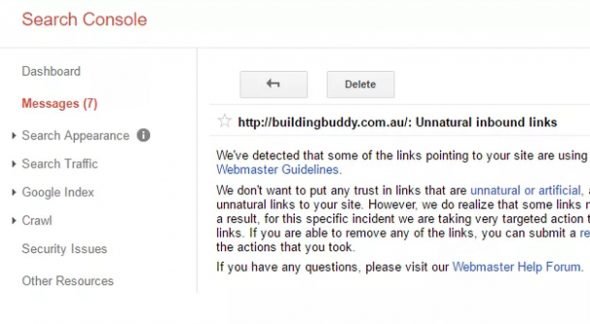Guest posting is one of a wide variety of marketing techniques used by business owners throughout the world. It rapidly gained prominence years ago as a way to earn authoritative links from high quality sites without needing a specific endorsement from that site. It took a hit with the famous Matt Cutts blog post decrying guest posting as a negative or abusive technique. Since then, it has steadily regained traction, and today is in common use once again.
When an official representative of Google tells you that a specific technique is done for, but you still use it, are you a white hat or a black hat?
About the Hats
In case you’re not aware – or you just use the terms without knowing what they are – whitehat and blackhat are terms that come from the hacker community. White and black, good and evil.
Whitehat hackers, or security contractors, penetration testers, and so forth, are people who know a lot about security – either physical or digital, or both – and put that knowledge to use to help and audit the security procedures of companies. Companies like KnowBe4 handle threat vectors like email phishing, while companies like the CORE Group cover a wide range of threat vectors. They sign a contract with a company, they break in and show what they can get to, then they write a report and help the company close the security holes that they exploited to get in.
On the other hand, blackhat hackers are the ones you hear about like Anonymous, the Lizard Squad, and other hacker groups. They take down sites for bounties, break into servers and steal personal data to sell, commit varying levels of fraud, and so on.
Typically, blackhat hackers are breaking laws or ethics to do what they do, while whitehat hackers are at least sanctioned by the company they’re breaking into.
Now, the same isn’t quite true when it comes to SEO’s version of white and black hats. With SEO, there aren’t laws to govern what is and isn’t allowed, outside of some specific legal precedents like anti-spam laws.
With SEO, you have the central authority of Google laying down the law. Whitehat marketers stay within these boundaries, adapt when those boundaries change, and work within those confines to grow their websites. Blackhat marketers use techniques that Google penalizes, so long as they work. What do I mean?
Here are a few examples of whitehat techniques:
- Creating high quality, unique pieces of content.
- Developing responsive websites with a good user experience.
- Catering to mobile devices to take advantage of mobile search.
- Building an interested audience on social media.
By contrast, here are a few blackhat techniques:
- Scraping content from other sites and spinning it to look reasonably unique.
- Building and operating a private blog network and using it for linking power.
- Purchasing or creating social media followers with bot accounts.
The difference between hats in hacker culture and hats in marketing is that, with a few exceptions, nothing a blackhat marketer does is strictly illegal. The techniques they use might get a site penalized by Google, but there are no legal repercussions for doing so.
Why Not Use Blackhat Marketing?
If the end result is a site that pulls in money, why does it matter whether you got it there using whitehat or blackhat techniques?
The root of the problem is that blackhat techniques are usually based on deception or exploitation of loopholes. With private blog networks, for example, you’re exploiting the value of links. Google assumes a link is a recommendation from one site to another, a sort of vote of confidence. When you’re building the source links yourself, but not disclosing your relationship, it’s like a political candidate filing votes for themselves. The resulting election is invalid.
People using the internet for information, for products, they want to find someone they can trust. They trust Google to be the arbiter of that trust. They believe that Google appropriately filters what should and shouldn’t be visible, what should and shouldn’t be trusted.
Now, Google has put themselves into a pretty precarious position. They don’t want to be arbiters of truth, fact, or trust. They’ve always tried to showcase what is popular with some basic filtering to eliminate results that are obviously false. Unfortunately, with their position as dominant search provider, they have a responsibility.
Antivaxx content, fake news, fringe political conspiracy theories; these are all promoted on Google because they’re popular, not because they’re true. Third parties are quickly developing ways to abuse Google for their own ends. Google will have to decide on a method for determining what is or isn’t true, or else they will have to give up their position as dominant arbiters of information.
I digress. As it stands right now, you can use whatever techniques you want to get your content to the front page, to get it in front of people. You can use whitehat techniques or you can use blackhat techniques, or even a mix of both, becoming a grayhat marketer.
The risk you run with blackhat techniques is that Google will detect those techniques and, in punishment for breaking or circumventing their rules, will penalize you. A huge number of sites are penalized every year, many of which never recover, but it doesn’t matter to most people because there are approximately infinite websites to choose from.
A whitehat marketer might take a long time to grow their site, but they build it on a strong foundation. Their growth is slow but it compounds year over year, and very little sets it back.
By contrast, a blackhat site can go from nothing to first page prominence very quickly. The trouble comes when it is penalized and they have to start all over. Growth, a quick moment of prosperity, and the inevitable fall. Often, blackhats abandon their sites and start over, rather than climb out of the hole Google puts them in. There’s no longevity from a blackhat site, without very careful preparation and a pivot to whitehat techniques prior to being penalized. Even then, it’s extremely difficult.
So to sum up, blackhat techniques are bad because they’re temporary, and that temporary nature means all of the work and investment you put into them is likely to be wasted. At the same time, using such techniques puts you in the same group as people who exploit lies for profit, which isn’t a great place to be if you want to establish a long-running brand.
Where Guest Blogging Stands
Guest posting is a semi-controversial technique that is, nevertheless, widely used throughout virtually every industry that has a blog presence. Google’s representatives said guest posting was done as a technique, but they didn’t actually mean what it said.
Basically, the act of publishing content on a domain you don’t own, and getting a link, traffic, a brand mention, or some other benefit out of it, is not a blackhat technique. It’s a perfectly valid, whitehat technique, that had been corrupted by blackhats at some point in the past.
It all comes down to how you go about your guest posting process. Here are a few comparisons.
Targeting
How do you choose where to publish your content? A whitehat marketer will do market research. You’ll dig through lists of industry blogs, looking for sites that are valuable but not so full of themselves that they’ll ignore your every attempt. You’ll strive to find relevant, high quality sites that have an eye for good content.
In a sense, it’s quality over quantity, except you’re fine going for quantity to, so long as all of those sites meet a certain relatively low baseline. As long as you’re not guest posting on sites that are clearly spam, using stolen content, or otherwise using blackhat techniques of their own, you’re probably fine.
By contrast, a blackhat marketer will send out a mass email to everyone they can find that is even vaguely relevant. The email will be impersonal, a “to whom it may concern” sort of post. If you own a site, you’ve probably received dozens of these messages. Stop me when this sounds familiar: “Hey, I’m the owner of SiteA, and I’m looking to build awareness for my site. I’d like to write a post for your site, all I ask is a followed link in return. Please revert and respond!”
Blackhats don’t care that 99% of their emails are ignored; the 1% that responds will get them enough links to kickstart the next site in their PBN.
Uniqueness
One of the hallmarks of a good guest post is uniqueness. You want to be giving high quality, unique content to the sites publishing you, since this is your reputation. It’s the same sort of reason that common job search advice is to tailor your resume to the position you’re applying for.
Whitehat marketers will gladly spend time writing unique content that fits both what they typically cover, and what the publishing site likes to publish. They want to find something that fits their audience, you want to attract their audience to your site, so carefully crafted content works out for everyone’s benefit.
A blackhat marketer, on the other hand, is likely to send off the same pitch and the same post to everyone on the list they contact. If you’re lucky, they’ll spin the post for each new source of publication, but it’s still the same basic content with the same basic premise. The only real value from a spun post is that the blackhat marketer isn’t as easily caught sending duplicates out.
Compensation
Whitehat marketers know that a decent link, a brand mention, or even just an author credit on a good site is often compensation enough. They help build trust and an online presence, that can be leveraged into future opportunities. Along with the quality of the content they produce, a whitehat marketer builds a distinctive presence as an authority and thought leader in their niche.
That’s not to say that a whitehat marketer can’t ask for or receive the same sort of benefits as a blackhat. A whitehat is perfectly able to ask for and receive a followed link, and can even be paid for their contributions.
A blackhat marketer, on the other hand, will demand a followed link because those are the only links they’re after. A nofollowed link does them no good, because the value of such links come in profile diversity, which doesn’t matter when your site is likely to be gone in six month anyway.
Many blackhat marketers also ask for or explicitly target sites that pay for posts. They do this to make a bit more money on the site, to maximize their true goal with marketing; their own individual, immediate profits.
Ends and Means
At the end of the day, as you can see, the goal and practice of guest posting is not a blackhat technique or, by itself, inherently a whitehat technique. Guest posting is simply the idea of getting your content published some attribution on a site that is in some way valuable to you, even if that value is just in the attribution.
When it comes to demanding additional value, taking shortcuts in the process, circumventing proper checks and balanced, or exploiting search loopholes, that’s when guest posting becomes a blackhat technique. Thankfully, more and more site owners are growing wise to the practices, and blackhat guest posts are harder and harder to achieve.
 ContentPowered.com
ContentPowered.com











